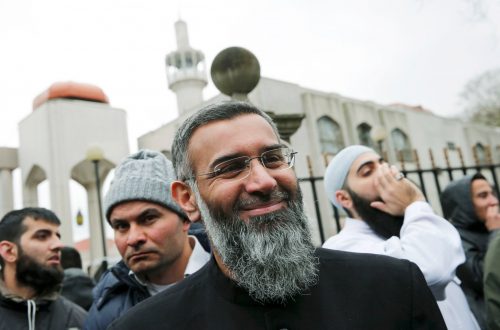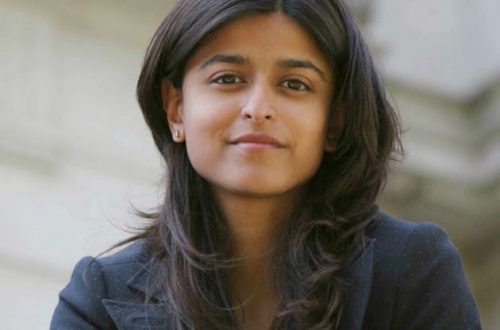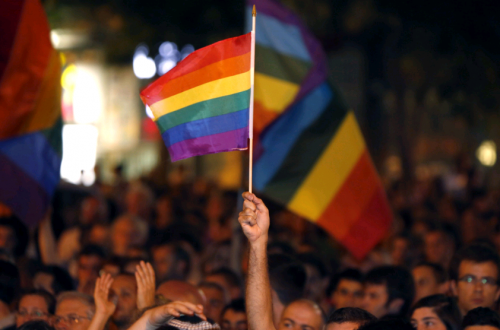In his new novel Dead Cat Bounce, author Seth Freedman has written an intriguing insight into the mind of a complex character, who works out his quarter-life crises against the backdrop of Jewish community issues, significantly the topic of Israel and Palestine. The plot involves a failed city worker being head-hunted by Mossad to carry out secret missions throughout the country. One of these missions includes acting as an anti-Zionist writer for the Guardian. The link between the various roles that the protagonist occupies, is ostensibly his ruthless streak and his amoral approach to life.
Mossad tell Freedman’s nameless protagonist that Mossad is looking for “Jewish kids who for one reason or another stand out as suitable […] That rules out most of the clones you’ve grown up with.” At this, Freedman’s protagonist and Freedman’s Mossad are at one, agreeing that as the protagonist represents such a unique Jew, he would be perfect for secret service duty.
Although it is unlikely that the real Mossad would use such a slack approach to recruitment, their intervention in the protagonist’s life occurs at a welcome point in the novel, and so Freedman’s fantasy version of Mossad serves as a useful literary device.
Mossad acts as a saviour, delivering the protagonist from an uncomfortable and immoral situation entirely of his own making. The protagonist thus experiences aliyah in a sort of amplified way – not only does he serve in the Israeli army, but he works for the mythical and clandestine Mossad. Prone to secrets and callousness, he is comfortable with the life Mossad offers him, even when involving extreme violence.
The protagonist’s increasing disillusionment with practically all aspects of modern life, serves as a common thread throughout the novel. Reaching a crescendo of cynicism, the protagonist despises his lover, for whom he thinks he is “playing into some Sex in the City fantasy of modern love between modern man and modern woman.”
The prose is full-bodied, changing pace but often moving at a breakneck speed. The high point of the book is really Freedman’s exploration of the stresses and strains of life upon a twenty-something financial worker in the City, and the effect that this fast-paced lifestyle can have on one’s mind and perception of his own world.
Freedman’s character is jaded with contemporary Jewish life, yet even more cynical to those beyond his community. He appears painfully self-aware both of his circumstances, and the consequences of his decisions and his lies. The protagonist admits freely that he is a nasty and manipulative person, which does give the reader a clearer understanding of his internal decision-making process, however this also makes it harder for the reader to invest emotion and to care about the character’s progress.
Freedman thus presents a dilemma for the reader, who must separate the egotistical protagonist’s perception of events, with how they must have appeared before others. So much so, that the protagonist acts at times as an obstacle to the narrative’s natural development, which some readers will find a pleasant challenge, and others frustrating.
The protagonist knows that his way of life is setting him on the path of destruction, and even when he does choose correctly, he is at pains to inform us that he does so for either selfish or banal reasons. This is true of even the most trivial decisions. For example, he chooses to eat an apple rather than smoke a cigarette at one point, only in order to stop the voices in his head which are telling him to do the right thing.
It is difficult to see much hope in the protagonist’s despairing and disturbed account, yet this is perhaps essential to the point that Freedman is intending. As the protagonist is lurched about in his personal life, he also oscillates between political opinions. And so we can begin to see how one’s political ideas can be an extension of one’s self, or even an accessory to one’s personality. And herein lies the key problem, to young people such as the protagonist, taking up overtly polemical or aggressive opinions.
Having boasted of so much deception, the protagonist ultimately deceives himself and loses his own identity. Although he was selected by Mossad for his racist attitude towards non-Jews, when given a secret mission to pose as a left-wing Guardianista, the protagonist quickly adopts a cynical attitude towards people with whom he would naturally share an opinion. In a bizarre conversation with an agitated religious woman in the West Bank, the protagonist begins to mock her anger and apparent hostility, which the reader would be forgiven for assuming that the protagonist naturally shared in the first place.
In conversation with this woman, the protagonist pretends he is checking off a “bingo card” of arguments that “right-wing” people would use about the Palestinian issue, and sneers at the worldview of Melanie Philips, before reflecting that “then again, it might be [that she is right] – what do I know, or more importantly, care?” Earlier in the book, the protagonist delights in winding up anti-Semitic Muslims online by asserting Israel’s supremacy. It is unclear then whether the protagonist knows where he stands politically, and so appears equally hostile to all positions, to the point of apathy and giving up.
Melanie Philips is the only journalist named in the book, and is mentioned in an unflattering way within the protagonist’s thoughts, and it is difficult to see how the protagonist has reached this opinion solely by pretending to be a left-wing anti-Zionist. This may well be explained, as the protagonist is developed as an unreliable narrator. Yet from a literary point of view, it may have worked better to have not named Philips at all, as this made me think of Philips as a perceived professional rival to Seth Freedman the journalist, rather than someone whom his literary protagonist disliked for effect.
This aside, the novel has many exciting points which beckon us to read on and see whether the protagonist will end up on top, or whether his chickens will eventually come home to roost.
No proverbial stone is left unturned, as Freedman excitedly explores a fantasy Mossad killing, Mossad discourse, and how Mossad employees would interact with each other in this extraordinary setting. Antisemitic Palestinian militiamen also feature, and the protagonist must make sense of the fast-unfolding action, of which he plays a key role, and must make snap decisions which again bear the gravest of consequences.
Throughout the book, the protagonist’s decision-making largely focuses on one concern only: the effects that his decisions will have on himself. Never mind others. The protagonist’s selfishness and alienation explain his attitude towards community organisations that seek to maintain a collective sense of being Jewish.
Thus the protagonist crudely and unfairly portrays the Community Security Trust as overly-aggressive and overly-sensitive, considering them to be equating apparently minor anti-Semitic threats with a potential Kristallnacht. Likely for this reason, the protagonist views huge swathes of the London Jewish community as status-obsessed and prone to conformity.
Perhaps it is only through the deeply cynical eyes of the protagonist – still reeling from drug-fuelled years high on cocaine – that we can appreciate quite how much one’s circumstances and poor decision-making can skew one’s outlook on life.
Whilst seeing himself as the master of his own destiny, Freedman’s protagonist is ultimately shaped by the decisions and orders made by others, and so his life slips out of control. There is a lesson, then, within these pages, although the lesson relates less to Israel and Jewish issues than you might assume initially.
The author has the potential and clear capability to spin an intriguing tale, and hopefully we will see Freedman develop his literary ideas – beyond the tense and oft-misunderstood backdrops of Middle Eastern violence and the sociology of London’s Jews. This may well happen in time, if Dead Cat Bounce indeed is the first of many novels by an imaginative and enthusiastic author.


